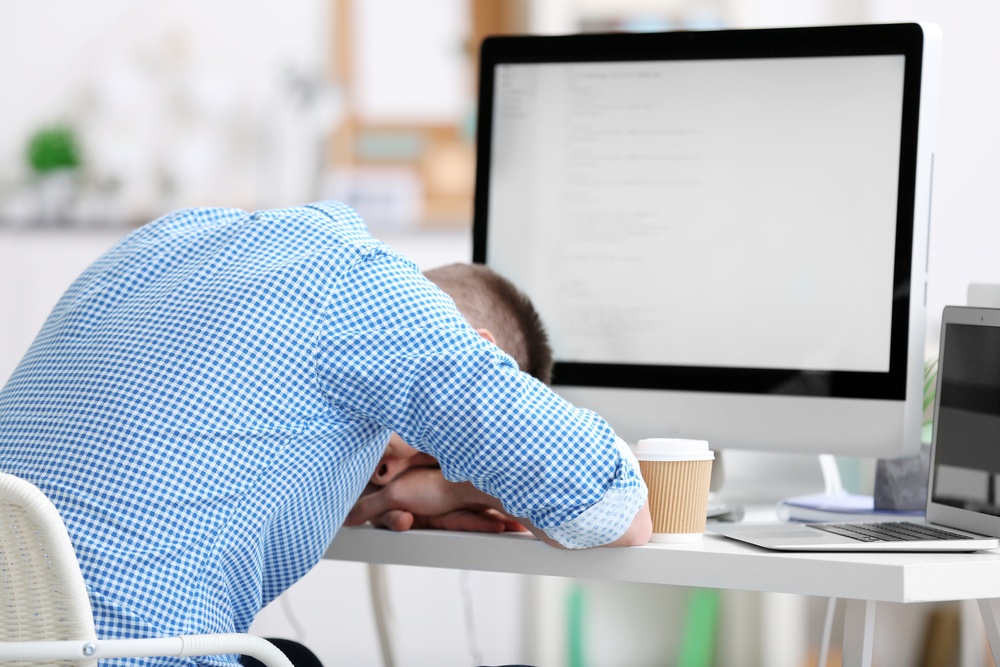Adults need 7-9 hours of sleep each night to give the body sufficient recovery time. In the U.S., about 35% of adults say that they get less than 6 hours per night. Researchers are finding more evidence that getting too little sleep increases risk of high blood pressure.
Lack of Sleep
About 50 million people suffer from sleeping disorders in the U.S. There are various reasons why people have a hard time falling asleep or getting a good night’s sleep.
Insomnia, sleep apnea, and even snoring are common reasons for insufficient sleep. Insomnia makes it difficult for someone to fall asleep when their natural body clock tells them to.
Sleep apnea is a condition that makes it difficult to breathe while sleeping, often waking the person up. Some sleep apnea patients use a machine and oxygen mask while they sleep to help keep up their breathing.
A less medical reason for not getting enough sleep is simply not allowing enough time for it. People tend to watch their favorite shows until late at night and then wake up early for work.
Getting Too Little Sleep Increases Risk of High Blood Pressure
Studies are showing that getting less than 5 hours of sleep each night can create a higher risk of blood pressure. This is the case with 5-6 hours of sleep.
Getting too little sleep increases risk of high blood pressure whether you already have prehypertension or high blood pressure already. If you already have high blood pressure, it increases the risk of having it worsen even more.
The Mayo Clinic conducted a study where a group of people participated in two different sleep trials.
For the first trial, the participants slept for 4 hours each night for 9 nights. In the second trial, the group slept for 9 hours for 9 nights.
After the trials concluded, the researchers found that the average systolic blood pressure level was 10 mm Hg higher when the participants got 4 hours of sleep than their 9-hour trial.
Additionally, when the group got less sleep each night, their blood pressure didn’t go down as much as it should at rest. This showed that getting too little sleep increases risk of high blood pressure.
Getting sleep helps to keep stress levels down and hormones regulated. If you’re not getting enough sleep, your body can easily get unbalanced and have side effects like high blood pressure.
Prepare for Sleep
If you can’t sleep well or not being able to fall asleep consistently, call your doctor and see what you can do to fix it.
Changing eating habits can help as well. Eating close to when you go to bed can make it difficult to sleep. Also, drinking caffeine before bed may perpetuate the problem.
Jobs that require sitting for long periods of time may not expend enough energy for you to feel tired enough for bed. Exercising in the morning or a few hours before bed can make sure that your body truly needs to rest.
If you are having trouble breathing when you sleep, see your doctor immediately. Sleep apnea is especially common in obese people. Without proper treatment, your health may deteriorate and could possible lead to death in extreme cases.
Also, if you struggle with high blood pressure, consider taking L-Arginine Plus. It naturally helps to lower blood pressure levels by creating more nitric oxide in the blood. Nitric oxide helps to loosen tight blood vessels, helping more blood to flow through.
L-Arginine Plus is an easy and effective way to help reduce the risk of heart disease and worsening blood pressure levels from lack of sleep.
Resources
http://www.star2.com/health/wellness/2017/02/15/lack-of-sleep-and-risk-of-high-blood-pressure/

